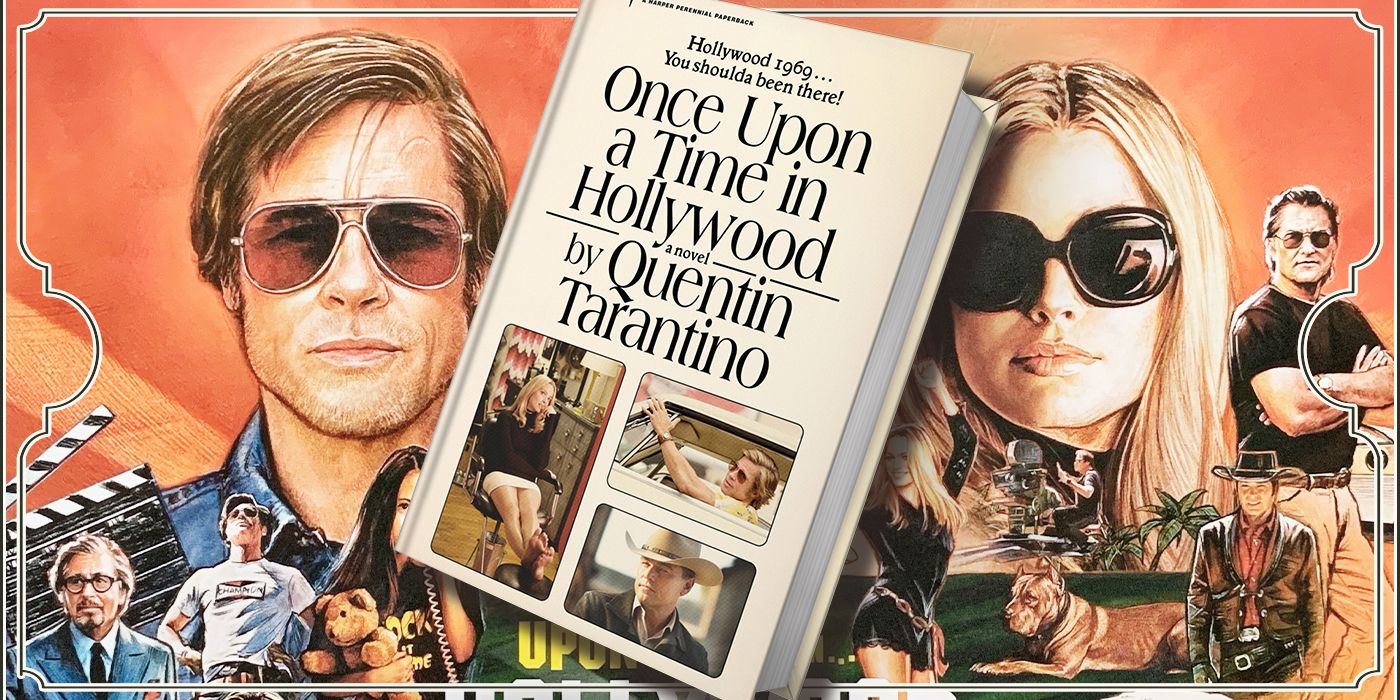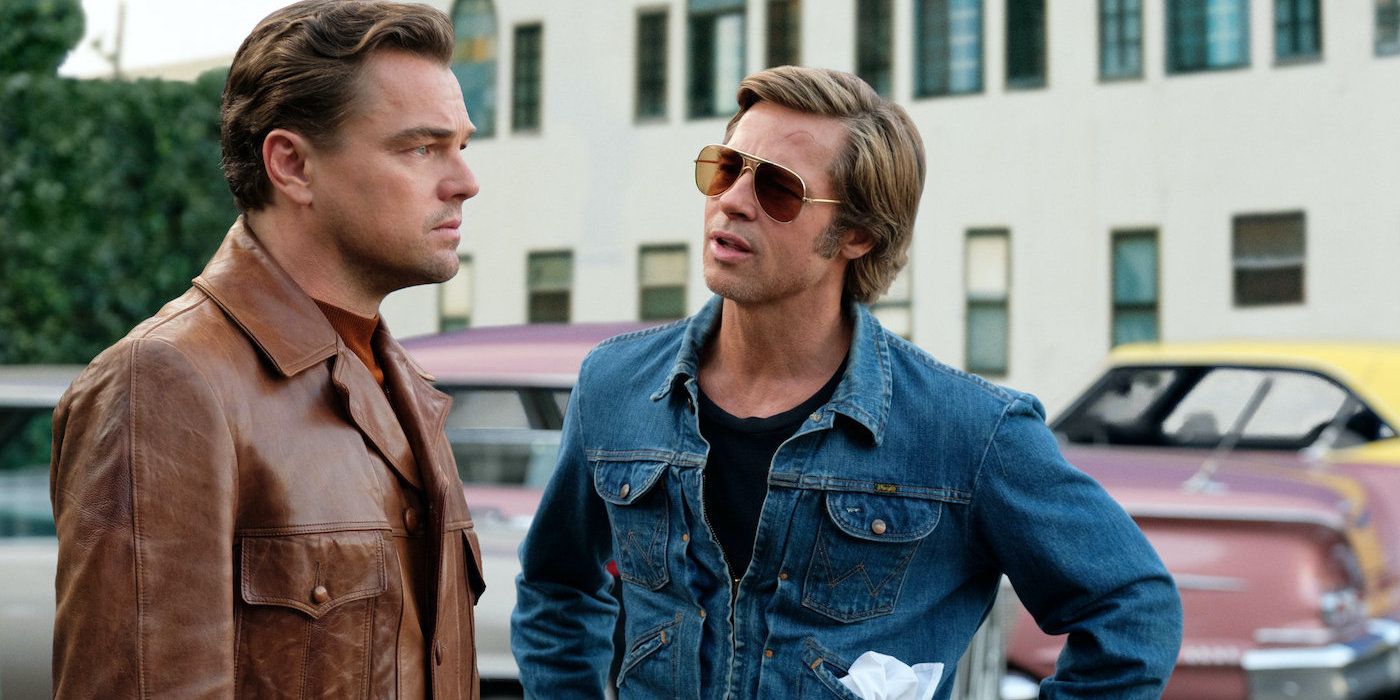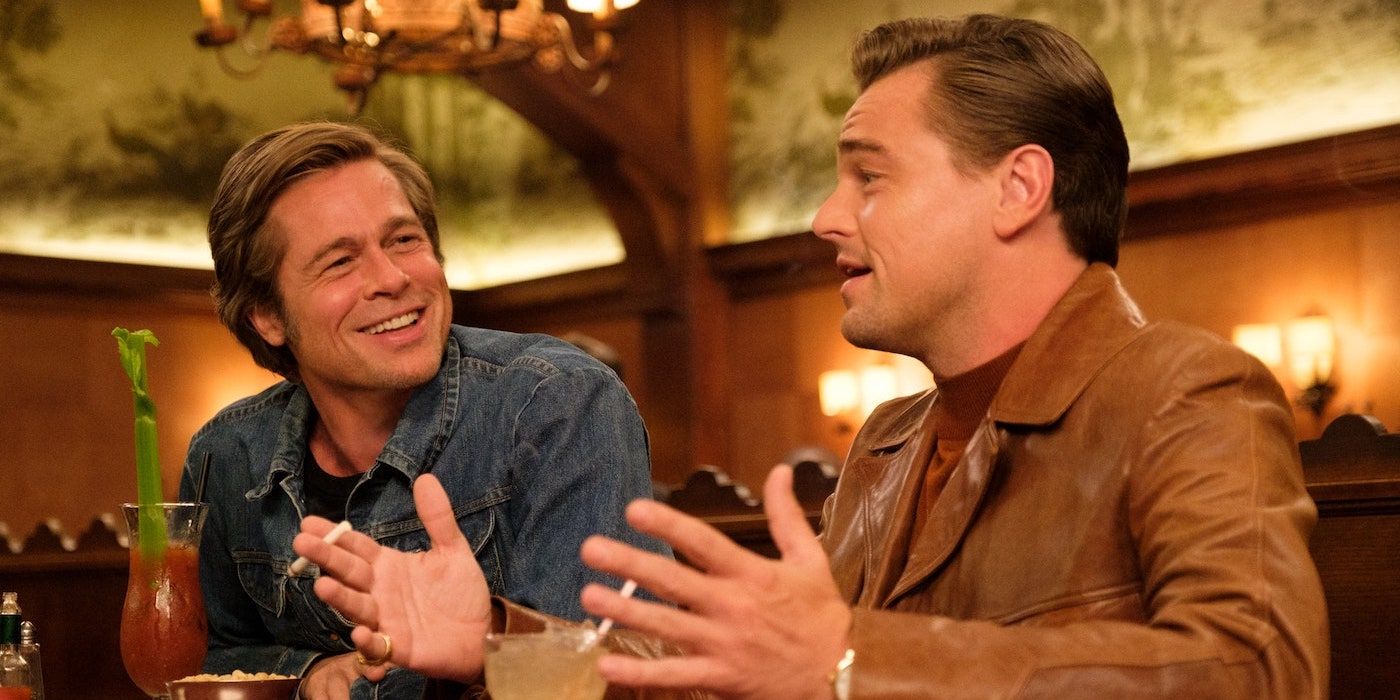[Editor’s Note: This article contains spoilers for both the book and movie of Once Upon a Time in Hollywood]
When Once Upon a Time in Hollywood was released as a book, there were those who seized on a particular chapter where it was revealed that Cliff Booth killed his wife on purpose. In the movie, this event is left ambiguous, but in the book, author/screenwriter/director Quentin Tarantino reveals Cliff purposely cut his nagging wife in half with a speargun, and then immediately felt bad about it. Such a reveal would seemingly undercut the character, turning him from a likable but mysterious figure into a cold-blooded murderer. But Tarantino knows that the challenge he’s posing for himself, and he’s using a different medium—the novel—to change his approach rather than simply repeating the beats of the movie in longhand.
What’s frustrating about the response to this chapter of the book is that the book never sets out to “answer” anything about the movie. It’s clear from the beginning that Tarantino, rather than simply “novelizing” his film by turning scenes into written chapters, is using the form of the novel to tell the story of Once Upon a Time in Hollywood in a new way. To say that one version “detracts” from the other is a refusal to accept them as similar entities operating on different wavelengths. Tarantino admits as much in the opening chapters when Cliff, who in the book is revealed to be a major cinephile, reflects on what novels allow an author to do:
“Foreign films, Cliff thought, were more like novels. They didn’t care if you liked the lead characters or not. And Cliff found that intriguing.”
This sentiment follows a previous observation from “Cliff” (going full-on as Tarantino’s mouthpiece for a variety of opinions regarding cinema) where he notes that Hollywood movies too often portrayed killers in a sentimental light when in reality these “these mercenary fuck faces didn’t have a sentimental bone in their body,” which is how Tarantino chooses to write Cliff in the Once Upon a Time book. On the page, Tarantino doesn’t have the advantage of Brad Pitt’s terrific and endearing performance, but he has all the time in the world for side stories about how Cliff acquired his dog Brandy by using her in dogfights and eventually killing her previous owner.
In the book, Cliff is a war hero was very good at killing, understands it intimately, and in his post-war career he gets away with murder multiple times. You can whine that this isn’t the Cliff of the movie, but that should be obvious because the Cliff on the page could never be the same character, and that’s what Tarantino is using a novel to explore. It’s not simply about “getting inside the character’s head” but rather seeing how a reader reacts differently than an audience. When we’re all watching Cliff on screen, he needs to illicit a certain reaction or else Tarantino might lose us for the two hours and forty-one minutes that he has us. But books are different animals, and I’m glad that Tarantino chooses to push our boundaries a bit on the page and test our investment in a character like Cliff. It’s easy to like Cliff when he’s played by Brad Pitt and he beats up Manson Family members. It’s more difficult when he thinks to himself about his begrudging respect for Charles Manson’s ability to pimp out underage girls.
This darkness is where the book runs into trouble, not because it fails to be the movie, but because Tarantino inserts himself so much into his work that you start to become uncomfortable on where he’s drawing the line between himself personally and as a storyteller. If you’re looking for his thoughts on the 1967 Swedish erotic drama I Am Curious (Yellow), that’s probably Tarantino. If you’re looking for his thoughts on pimping out women, that’s tougher because you get stuff like this:
“You can’t fuck ‘em like you fuck your best friend’s girlfriend. You can’t fuck ‘em like you fuck your father’s mistress. That’s fucking for fun. This is work. For work, they fuck customers for money. For work, you fuck them for money. And trust me, they’re harder to please. If you want to keep ‘em in line, you better fuck ‘em good, and you better fuck ‘em a lot. Which means you’re gonna haft fuck ‘em when you don’t wanna fuck ‘em, and you hafta fuck ‘em good. And the more bitches you have, the more fuckin’ you’re gonna do. More bitches means more fuckin’. No sleepin’ on the job. You get lazy even four goddamn days, that bitch is gonna wake the fuck up.”
Of course, this issue of where does “Tarantino the Auteur” stop and “Tarantino the Individual” begin is a fascinating question, and has been since he became the incredibly public face of all his movies right from the opening scene of Reservoir Dogs where he’s pontificating about the true meaning of “Like a Virgin.” The novel of Once Upon a Time in Hollywood makes this issue more immediate since as author we’re drawn further into his words and mindset, and yet I don’t want to make any proclamations about I guy I’ve never even spoken to let alone know as an individual. I can say that scenes like the one above certainly make me feel icky, but that feeling also helps the book separate itself from the movie.
What I appreciated most about Once Upon a Time in Hollywood as a book is that it didn’t read as an “extended cut” of the movie. Yes, there are “new scenes”, but there are also scenes that take place in completely new settings, and the order of the narrative is changed to where the ending is completely different (the book concludes with Rick feeling like he really nailed an upcoming scene with Trudi rather than Rick getting to hang out with Sharon Tate and her pals). This is in addition to Tarantino’s ability to include little detours like his thoughts on the films of Akira Kurosawa or writing out a whole backstory for the TV series Lancer.
To go looking in the Once Upon a Time in Hollywood book and using it to somehow decrypt the movie does a disservice to both. It’s fair to hold one version in higher esteem than the other, but one must also acknowledge that they have different purposes because the medium dictates different outcomes, and to try and replicate the film into the book would be a folly that would serve neither. Once Upon a Time in Hollywood doesn’t have any “answers” to the movie; instead, it offers a fresh way to experience the story that honors its new format rather than simply transcribing the movie.



